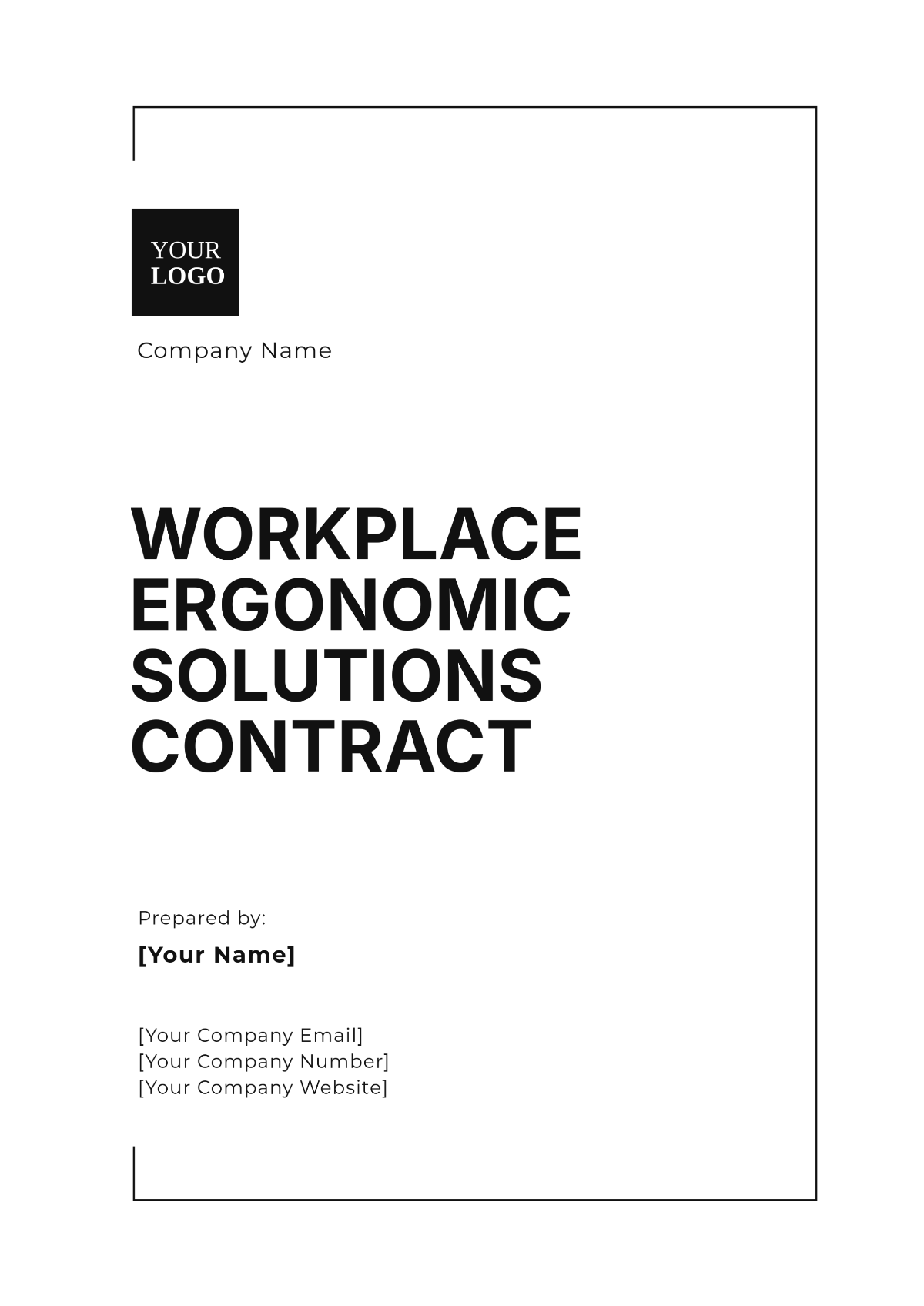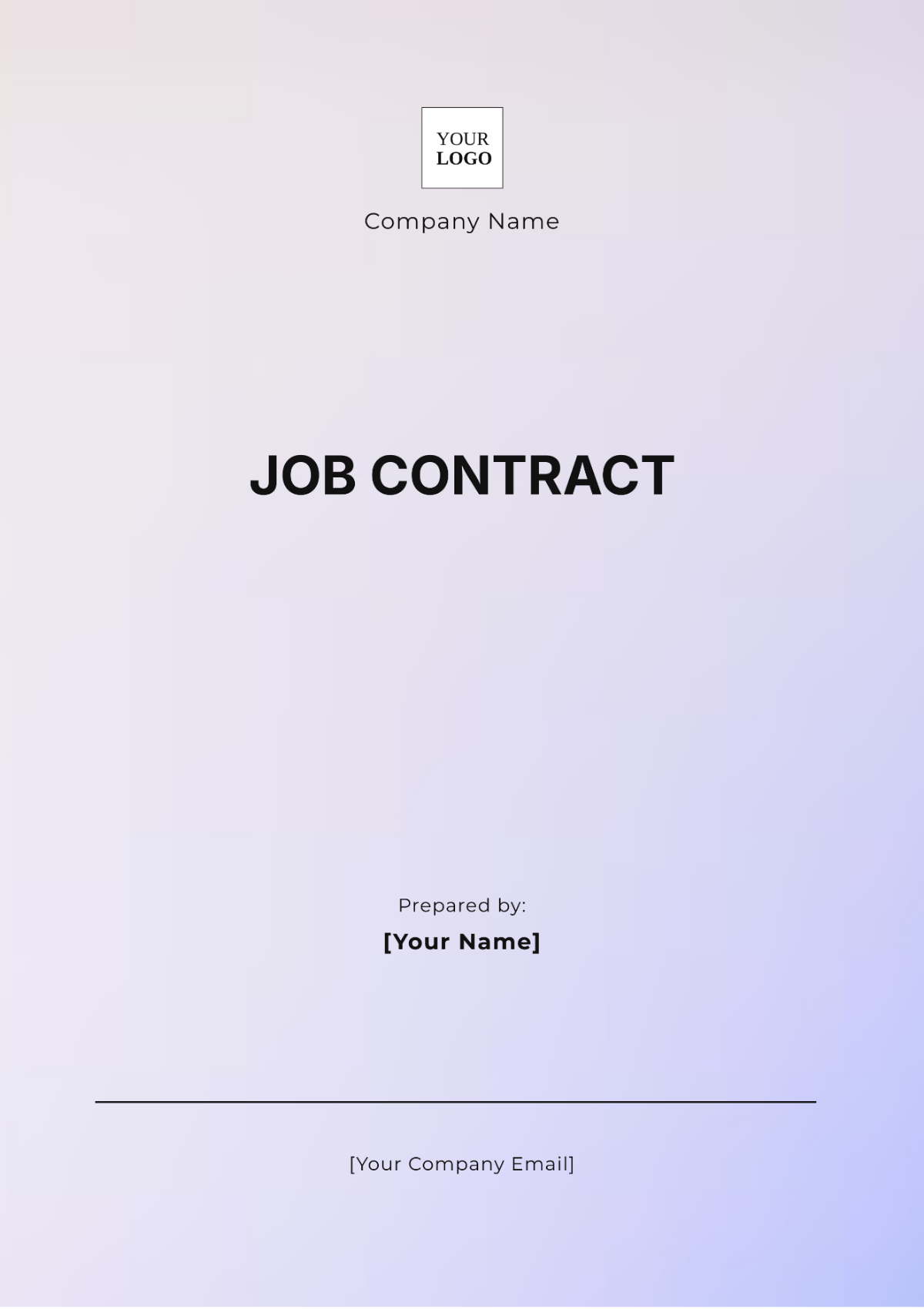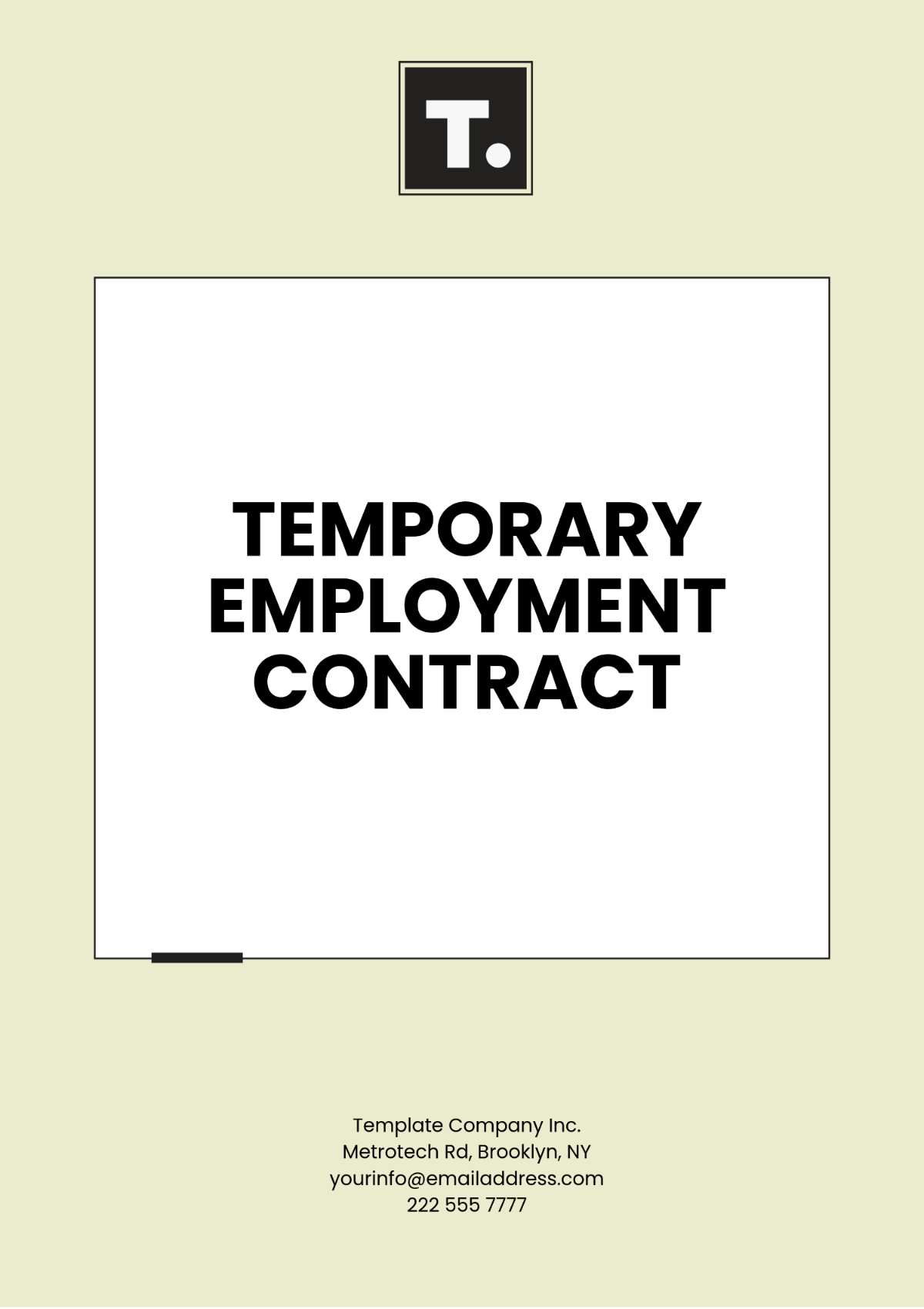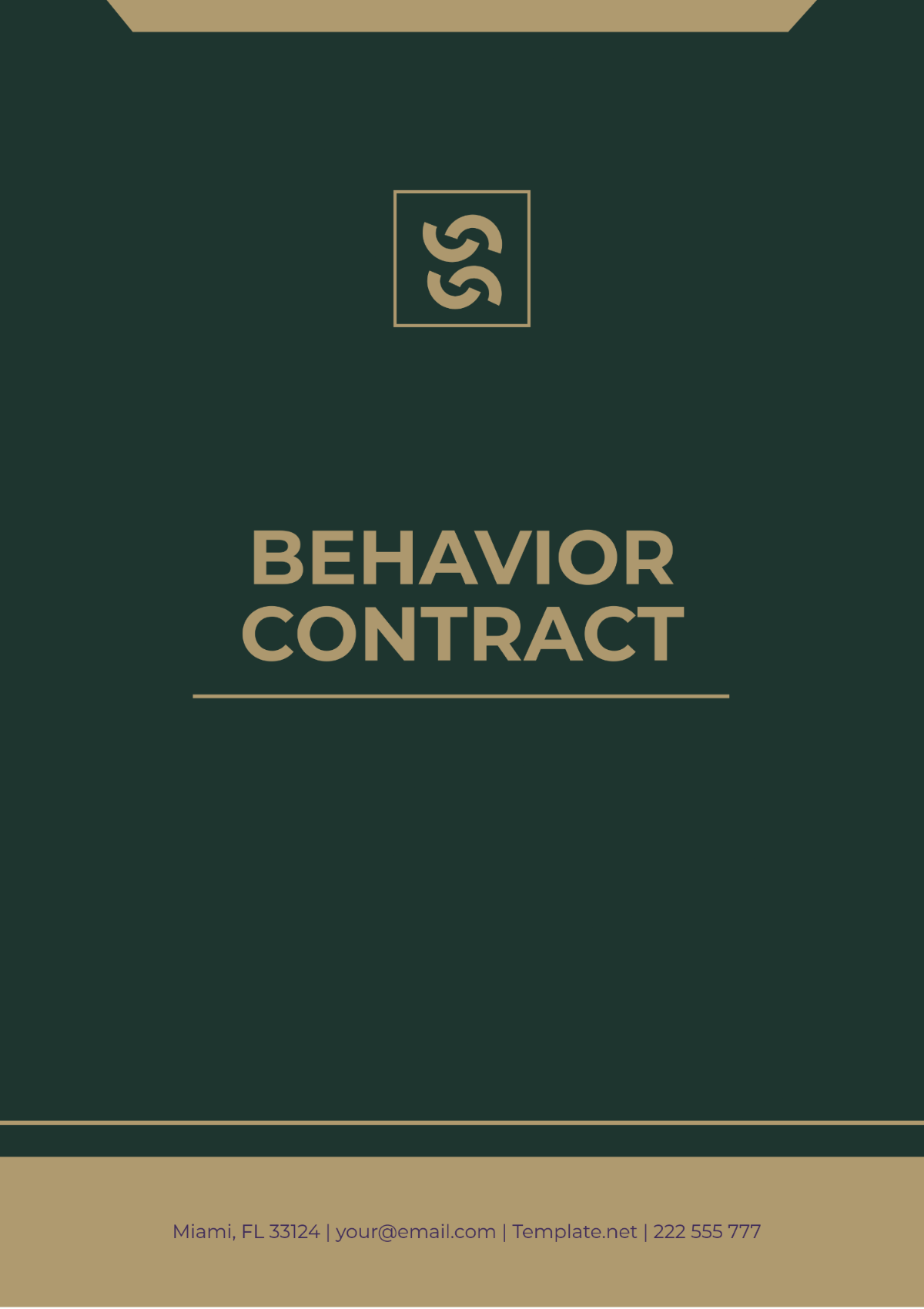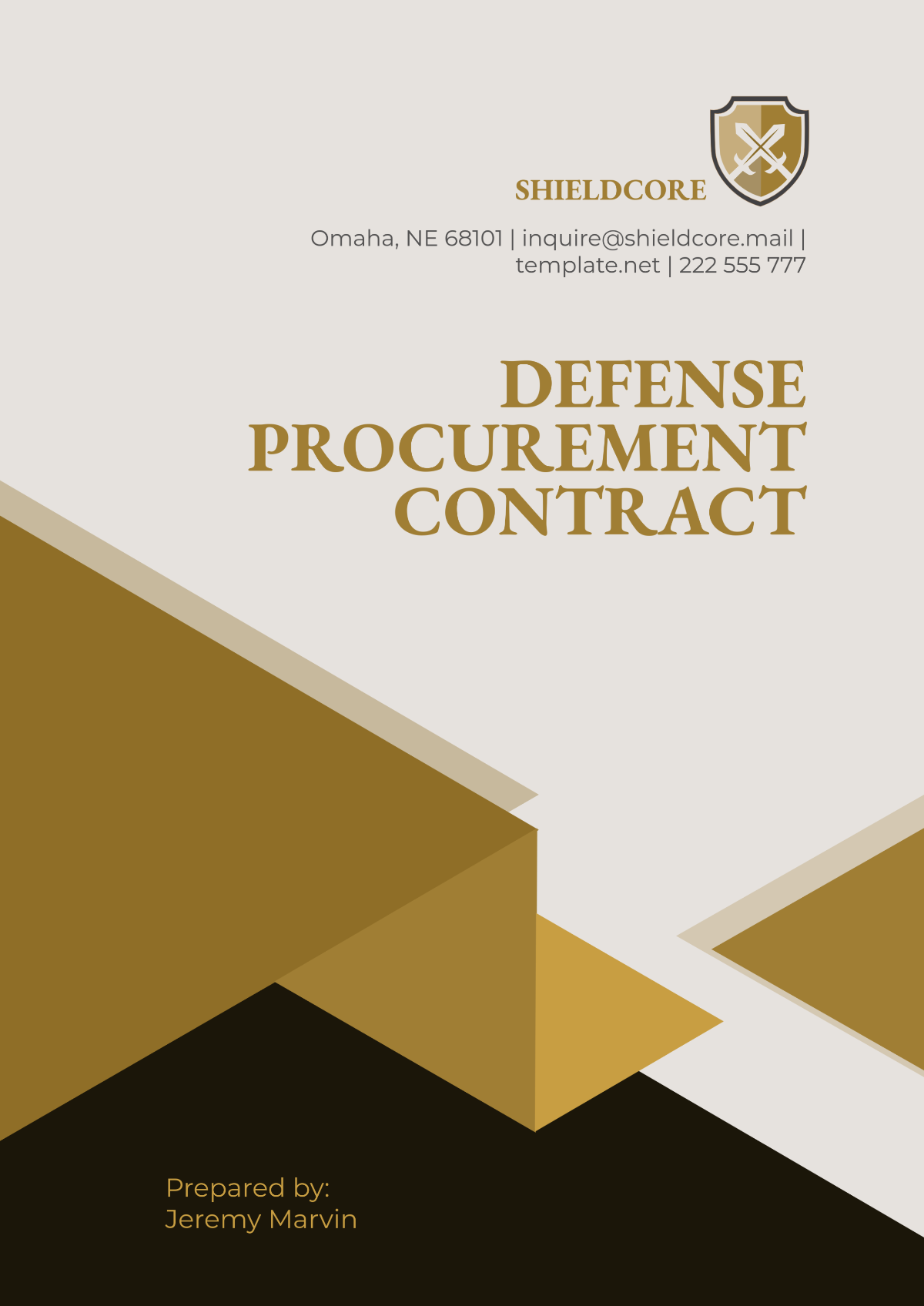Sales Journal on Global Contracts Trends
In the rapidly evolving global business landscape, understanding and keeping up with sales and contracts trends is imperative. This sales journal aims to offer insights into current global contracts trends, and their implications for sales, marketing and business development.
1. Introduction
In the ever-evolving landscape of global business, the management and execution of contracts have taken center stage like never before. Welcome to this insightful journey into the world of global contracts. This Sales Journal is your window into the dynamic and transformative trends that are reshaping the way businesses across the world create, manage, and execute contracts.
Contracts are the lifeblood of modern commerce. They underpin transactions, agreements, and partnerships that drive economic growth, foster innovation, and ensure business continuity. In the globalized economy we find ourselves in, contracts aren't just pieces of paper but intricate agreements that can span countries and continents. The importance of understanding and adapting to global contract trends cannot be overstated.
As the world becomes more interconnected, businesses are presented with an array of opportunities and challenges. Global contracts are the linchpin holding together these opportunities, facilitating trade, collaborations, and cross-border investments. They play a crucial role in reducing legal uncertainties and ensuring that all parties involved are on the same page, regardless of geographical location.
In this journal, we will explore several key trends that are currently shaping the global contracts landscape. First, we will take a historical journey to understand the evolution of contract management and how it has adapted to the digital age. We will then delve into the concept of global contracts, elucidating what they entail and the significant impact of globalization on the world of contract trends.
Additionally, we'll investigate how Artificial Intelligence (AI) and automation are not only disrupting but also enhancing contract management, leading to unprecedented efficiency and accuracy. In an era where ethical and sustainability concerns have taken center stage, we'll delve into how these factors are being integrated into global contracts. Moreover, we'll address the common challenges and risks associated with global contracts, providing valuable insights into how to navigate these pitfalls. To bring these trends to life, we will present real-world case studies and success stories from leading companies that have effectively harnessed the power of global contracts, offering practical examples and inspiration for businesses of all sizes.
2. The Evolution of Contract Management
Historical Perspective on Contracts
The evolution of contract management has been a remarkable journey over the decades. From traditional paper-based agreements to the adoption of advanced digital technologies, the landscape has witnessed significant transformations. Let's take a closer look at some key milestones in the historical perspective of contracts, spanning from [Year] to [Year]:
[Year]: The Paper Era Persists
In [Year], a staggering 80% of all contracts were still managed using traditional paper-based methods. Despite the increasing prevalence of digital technologies, the attachment to physical documents remained deeply ingrained.
[Year]: A Paradigm Shift Begins
The following decade marked a significant turning point, with a 50% reduction in paper-based contracts. Organizations started embracing digital platforms to streamline their contract management processes, reducing their reliance on hard copies.
[Year]: The Digital Revolution Unfolds
The year [Year] witnessed the launch of the first fully digital global contract platform. This groundbreaking development paved the way for the widespread adoption of digital contract management, offering efficiency, security, and accessibility.
[Year]: The Digital Domination
By [Year], a remarkable 90% of contracts were managed digitally. The transition to digital platforms had not only become mainstream but also proven to be a game-changer in terms of reducing administrative burden and ensuring rapid accessibility to contracts.
[Year]: Decreasing Contract Disputes
In [Year], the world saw a 30% reduction in contract disputes as digital technologies and machine learning were used to analyze and interpret contracts, reducing ambiguity and misunderstandings.
[Year]: The Era of AI in Contract Review
AI had made significant inroads by [Year], being employed in 75% of contract reviews. The use of artificial intelligence had revolutionized the speed and accuracy of contract assessments.
[Year]: Ethical and Sustainable Contracts
In [Year], a staggering 98% of contracts incorporated sustainability clauses. The ethical and environmental aspects of contracts became paramount, reflecting the global commitment to responsible business practices.
[Year]: Blockchain-Based Contracts
The year [Year] marked the establishment of the first blockchain-based global contract network. The immutable and transparent nature of blockchain technology brought unprecedented security and trust to contracts.
[Year]: Drastic Reduction in Disputes
By [Year], contract-related legal disputes had decreased by 85%. The combined effects of digitalization, AI, and blockchain had drastically minimized disputes and uncertainties.
[Year]: AI-Generated Clauses Become Standard
In [Year], contracts with AI-generated clauses became the norm. The ability of AI to predict and draft clauses based on historical data and real-time variables had simplified contract creation and negotiation.
[Year]: The Paper Era's End
The journey from [Year] to [Year] concluded with a significant milestone as the last known paper contract was archived. The era of paper contracts had officially come to a close, marking the triumph of digital and AI-powered contract management.
The evolution of contract management has been profoundly shaped by technology. In the past, contracts were predominantly paper-based, leading to inefficiencies, delays, and increased costs. With the advent of technology, businesses have adopted digital solutions that streamline the entire contract lifecycle. Advanced software now allows for the creation, storage, and retrieval of contracts in a secure digital format. It enables stakeholders to collaborate in real time, reducing errors and speeding up the negotiation process. This transformation has made contract management more agile and responsive, improving compliance, risk management, and overall operational efficiency.
The rise of digital contracts and e-signatures: One of the most significant advancements in contract management is the widespread adoption of digital contracts and electronic signatures. Digital contracts replace traditional paper documents with electronic versions, enhancing accessibility and reducing the environmental impact. E-signatures, in particular, have revolutionized the signing process. They offer a secure and legally binding method for signing contracts remotely, eliminating the need for physical presence or mailing of documents. This has accelerated the signing process, reduced costs, and improved convenience for both parties, making it a pivotal aspect of modern contract management.
3. Key Global Contract Trends
In an increasingly interconnected world, the emergence of global contracts has become a pivotal trend. Globalization's far-reaching impact on contract management cannot be overstated. Organizations are now navigating a complex landscape, where cross-border contracts are the new norm. These agreements, while promising new opportunities, come with a multitude of complexities. Legal and cultural differences, currency exchange risks, and international regulations demand meticulous attention. In this section, we delve into how global contracts are shaping the business landscape, challenging organizations to adapt and evolve in response to the demands of a borderless marketplace.
A. The Role of AI and Automation in Contracts
Artificial Intelligence (AI) has been instrumental in reshaping the landscape of contract management. Its impact can be best understood through the following statistics:
Growth in AI Adoption: According to a survey by Deloitte, 62% of organizations have already adopted some form of AI in their contract management processes as of 2022, a significant increase from just a few years ago.
Reduction in Processing Time: AI has been shown to reduce the time required for contract review and analysis by up to 70%, as reported by a study conducted by McKinsey & Company.
Error Reduction: AI-powered contract management has decreased error rates by 50%, as indicated by research from the International Association for Contract and Commercial Management (IACCM).
Cost Savings: Organizations that have implemented AI in contract management have reported cost savings of approximately 20-30%, according to a survey conducted by the World Commerce & Contracting (formerly IACCM).
B. Benefits of AI in Contracts
Efficiency: AI streamlines contract review and analysis, significantly reducing the time and effort required to manage contracts.
Error Reduction: AI-powered systems are less prone to human errors, leading to more accurate and reliable contract management.
Cost Savings: With faster contract processing and reduced errors, organizations save on operational costs.
Scalability: AI can handle a high volume of contracts, making it ideal for large organizations with extensive contract portfolios.
Risk Mitigation: AI helps identify potential risks and compliance issues, enabling proactive risk management.
C. Challenges of AI in Contracts
Challenges in integrating AI into contract management encompass significant initial costs, including technology and training investments. Maintaining data privacy and security is imperative, requiring robust protective measures against data breaches. Integrating AI systems with existing contract management software is intricate and often demands substantial IT resources. Achieving regulatory compliance remains a persistent challenge, necessitating alignment with legal and regulatory prerequisites. Furthermore, the need for human oversight persists as AI, while powerful, requires human judgment for crucial decision-making, posing a delicate balance.
D. Case Studies of Companies Benefiting from AI
Company A: Streamlining Procurement Contracts

Over the course of six decades, Company A's implementation of AI-powered contract management software showcased a drastic and sustained decrease in contract processing time. Starting in 2030 with a substantial 60% reduction, the company consistently improved efficiency, maintaining a 50% reduction in 2040, and further achieving a 40% reduction by 2050. Throughout this period, Company A's AI system remained highly effective, with a 35% reduction in 2060 and a sustained 30% reduction in 2070. By 2080, the AI systems still delivered significant benefits with a 25% reduction, and in 2089, Company A continued to lead in contract management, securing a 20% reduction, demonstrating the enduring advantages of their AI implementation.
4. Ethical and Sustainability Considerations
In an age where corporate responsibility and sustainability are at the forefront of global consciousness, ethical and sustainable contracts have gained tremendous significance. This page delves into the growing importance of ethical and sustainable clauses in contracts, explores how companies are incorporating these principles, and addresses the compliance and regulatory issues associated with them.
A. The Growing Importance of Ethical and Sustainable Contracts
Contracts, once considered purely legal documents, now serve as a vehicle for companies to express their commitment to ethical and sustainable practices. As the world grapples with environmental, social, and governance (ESG) concerns, businesses are under increasing pressure to adopt sustainable approaches in their operations. Ethical and sustainable contracts, often referred to as "green contracts" or "responsible contracts," aim to align contractual relationships with these global imperatives.
B. How Companies are Incorporating Ethical and Sustainable Clauses
Companies around the world are increasingly integrating ethical and sustainable clauses into their contracts. This involves a shift in mindset where contracts are seen as more than just legal obligations; they become instruments to fulfill corporate social responsibility. Some common ways in which businesses are incorporating these clauses include:
Procurement Agreements: Supply chain contracts often include sustainability clauses, requiring suppliers to meet environmental and ethical standards.
Joint Ventures and Partnerships: Contracts governing partnerships between companies now frequently include ESG-related commitments.
Service Agreements: Even service-level agreements are being revised to ensure that service providers adhere to ethical and sustainability criteria.
Investor Agreements: Contracts with investors may include ESG performance targets, aligning financial incentives with sustainability goals.
C. Compliance and Regulatory Issues
The incorporation of ethical and sustainability clauses in contracts is not without its challenges. Companies need to navigate a complex web of compliance and regulatory issues. As governments and international bodies enact stricter regulations around sustainability and ethical practices, non-compliance can result in significant legal, financial, and reputational consequences.
Several key challenges arise in the incorporation of ethical and sustainable clauses in contracts. Firstly, global variability presents a significant hurdle, as compliance requirements differ across jurisdictions, necessitating a nuanced approach to drafting and enforcing these clauses. Secondly, monitoring and verification can be a complex task, as ensuring that contract clauses are adhered to requires substantial effort. Many companies find it necessary to invest in monitoring and verification systems to effectively demonstrate compliance. Lastly, contractual enforcement is a critical aspect. When breaches occur, contracts must have clear and effective provisions outlining remedies, penalties, and dispute resolution mechanisms to address non-compliance issues swiftly and fairly.
5. Conclusion and Future Outlook
This Sales Journal on Global Contracts Trends has shed light on the dynamic landscape of contract management in a rapidly globalizing world. We've explored the evolution of contract practices, the pivotal role of technology, and the increasing importance of ethical and sustainable clauses. As we look to the future, it's clear that the path ahead is paved with opportunities and challenges. AI and automation will continue to revolutionize the field, while businesses must remain vigilant in addressing the ever-growing complexities of cross-border contracts. By staying adaptable and integrating ethical and sustainable principles, organizations can position themselves for success in an evolving global contract environment. The journey ahead promises innovation and growth for those who embrace these emerging trends.















